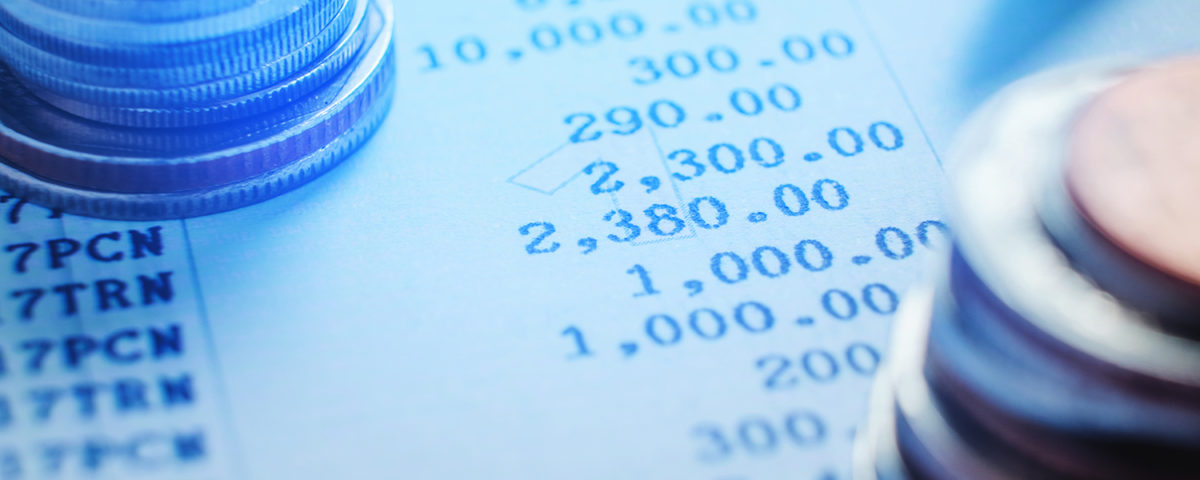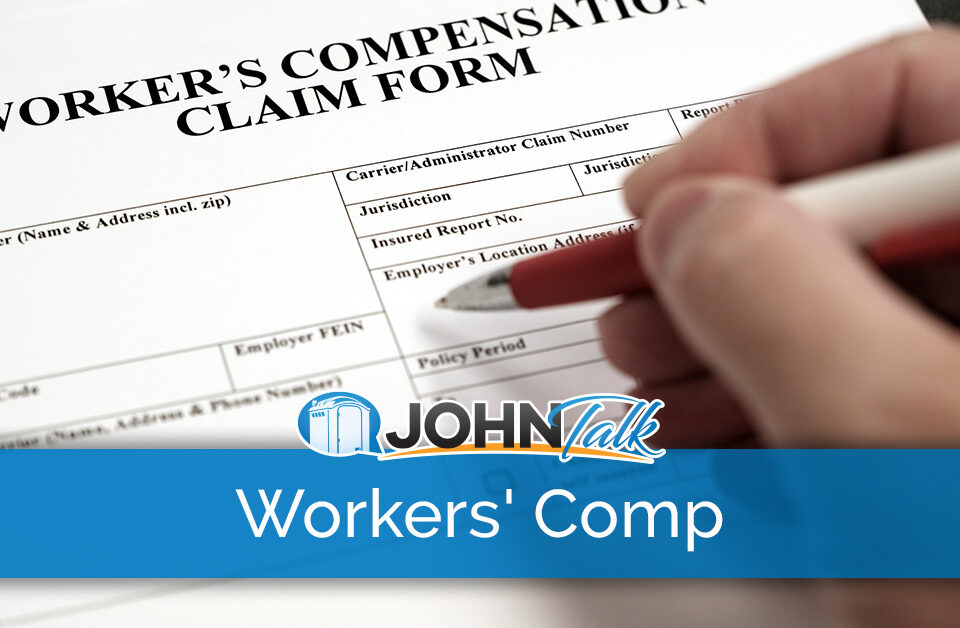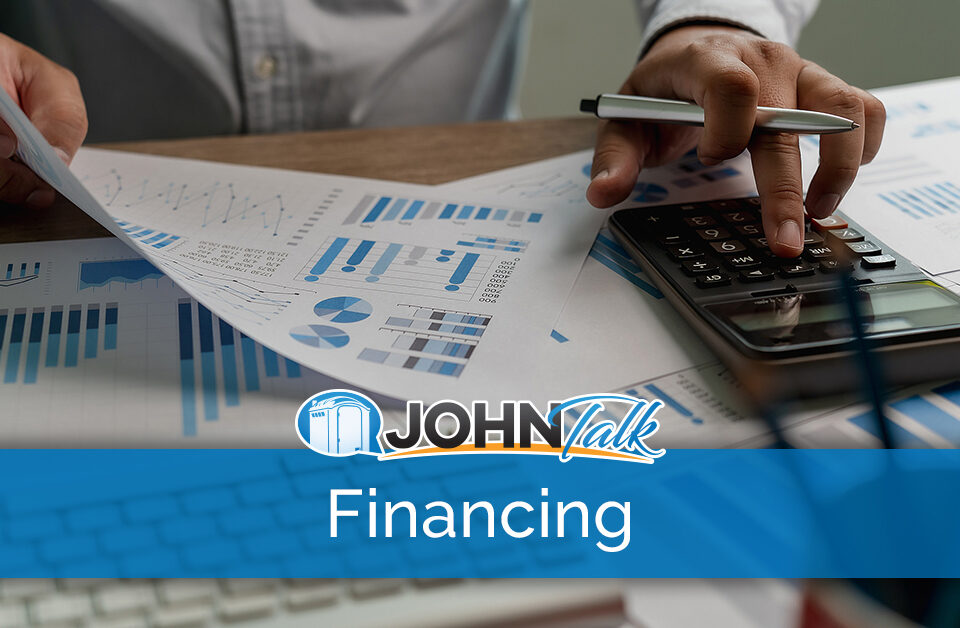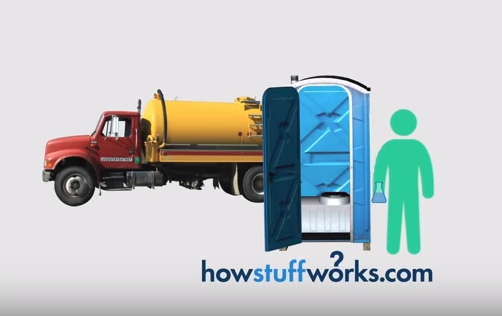
How Porta-Potties Work Podcast Review
March 9, 2018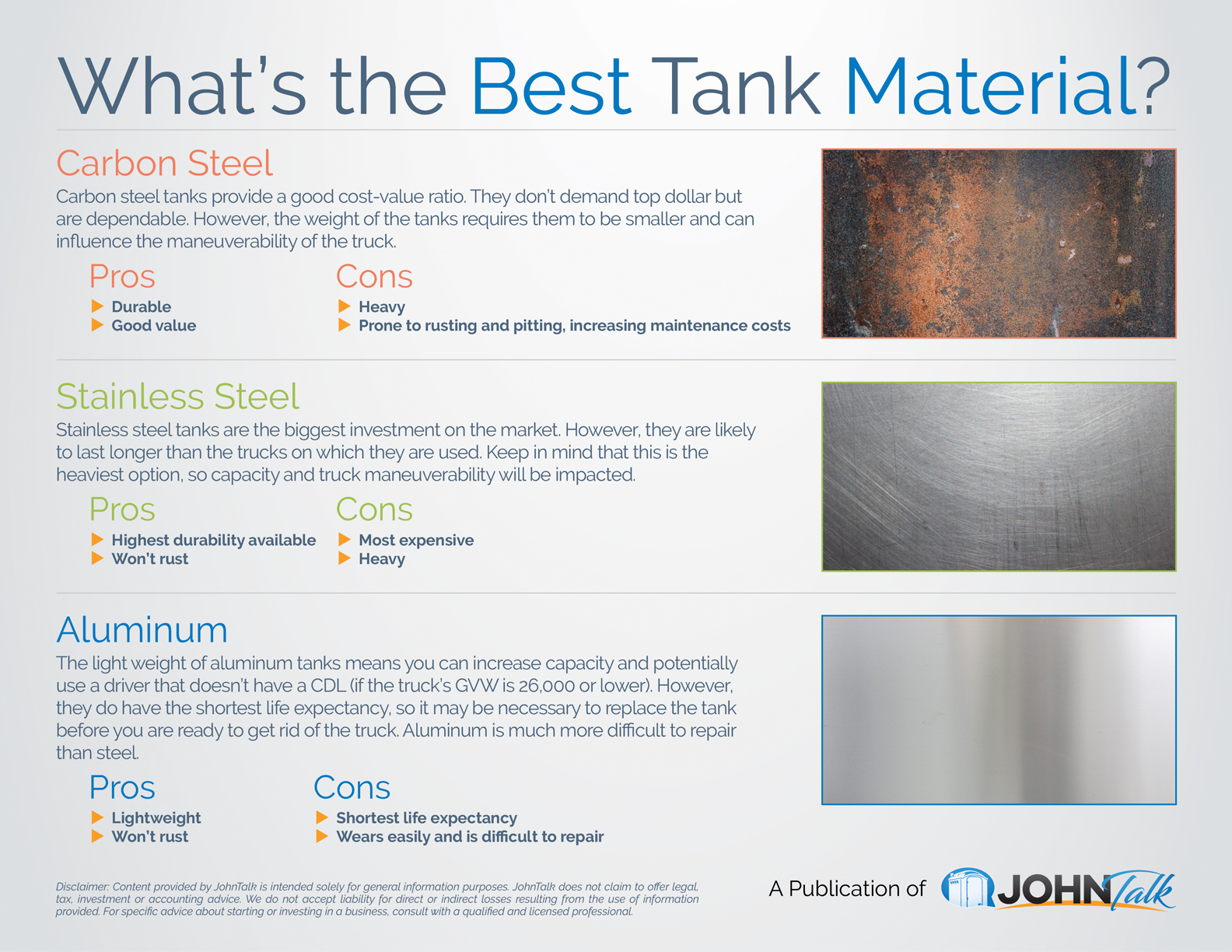
INFOGRAPHIC: What’s the Best Tank Material?
March 13, 2018It’s not surprising that some small businesses fail. What is surprising is why – most businesses fail due to poor money management. In other words, not knowing the cost of doing business can cost you everything! It therefore also stands to reason that smart cost management will go a long way toward helping you succeed.
Knowing your cost of doing business is a health checkup for your company. It means knowing where you stand – what areas of your business are doing well and where you are wasting money. It’s your GPS to the future, helping you determine the business strategy to reach your company and personal goals.
To figure your cost of doing business, add up everything you spend on labor, materials, and overhead. Doing an annual total will give you an overall view of expenses, while doing it monthly or quarterly will give you a view of seasonal trends. Try to be as thorough and complete as possible. Divide your expenses into two categories: fixed costs and variable costs.
Fixed Costs
Fixed costs are costs that you will have regardless of how well your business does. They remain about the same from month to month. Your fixed costs will be the same no matter how many units you rent. The most common fixed costs are:
- Insurance — For businesses, usually general liability insurance and commercial auto insurance
- Loan repayment — For example, a business startup loan or financing for a pumper truck
- Rent — If you’re renting property or storage facilities for your business
- Leases — If you’re leasing equipment
- Property taxes — As opposed to rent, taxes on property you own that you use for your business
- Utilities — Although there is variation month to month, water, gas, electric, etc. are usually considered fixed
- Wages for salaried employees or hourly employees whose hours don’t fluctuate greatly (and taxes associated with employment)
- Technology support — Accounting software (such as QuickBooks) and customer data programs; larger operations might also include GPS, routing program, fleet tracking subscriptions, and cell phones for employees
- Website maintenance
- Licenses and permits
- Depreciation — Depreciation is converting the cost of an asset or capital expenditure (a newly purchased asset) into an expense. Property such as vehicles, machinery, and buildings that you use in your business can be depreciated. Depreciation is an expense because you are spreading out the cost of the asset over the time.
Get the JohnTalk “ALL-ACCESS PASS” & become a member for FREE!
Benefits Include: Subscription to JohnTalk Digital & Print Newsletters • JohnTalk Vault In-Depth Content • Full Access to the JohnTalk Classifieds & Ask a PRO Forum
Variable Costs
Variable costs are costs that go up or down based on your sales. Your typical variable costs are:
- Fuel
- Dumping fees
- Operating supplies — Restroom and sink supplies are likely to vary by season
- Wages for seasonal employees and hourly employees whose hours fluctuate greatly
- Equipment repairs — For trucks, trailers, and toilets
- Marketing and advertising expenses — Ads and printed marketing materials
- Business taxes
Working Toward Profitability
One very important reason to keep track of your business costs is to help you determine your breakeven point – the point at which the money you are earning equals the amount you spend on fixed and variable costs. Once you reach your breakeven point, the next step is even more exciting – achieving your goal of making a profit.
When you understand how your fixed and variable costs affect your business, you have the vital information you need to grow your business to profitability in the most efficient way. Although it’s difficult, you may be able to find ways to reduce your fixed costs. It’s more likely, however, that how you manage variable costs will lead to greater success. For example, you might want to increase your rental fees for the units you have. Or, you may want to charge the same fees but buy more units. Or, you may find a vendor that charges less for your supplies. There are many possibilities!
Looking to Take Your Portable Restroom Business to the NEXT LEVEL? Download our FREE Guide: “Your Guide to Operating A Portable Restroom Business.”
Thinking About GETTING INTO the Portable Restroom Industry? Download our FREE Guide: “Your Guide to Starting A Portable Restroom Business.”


